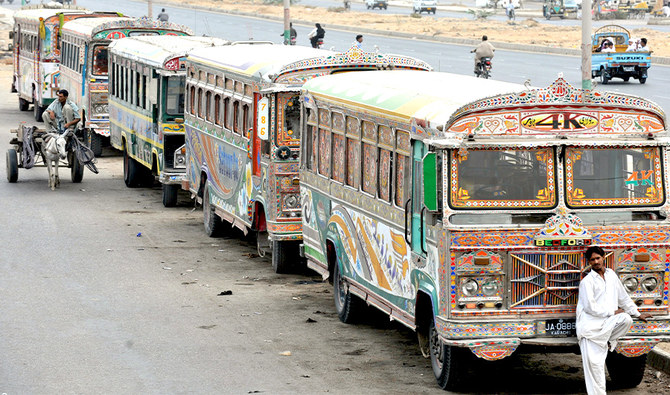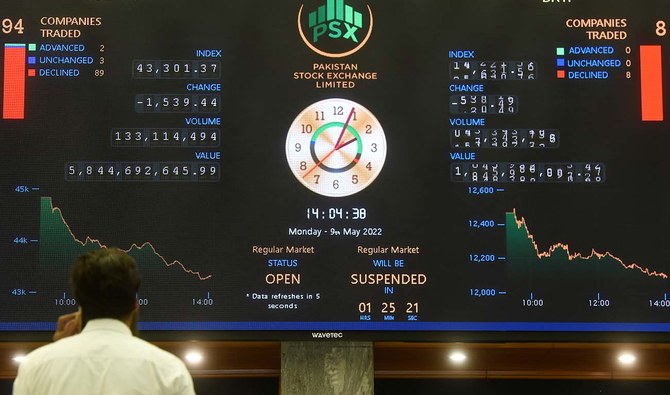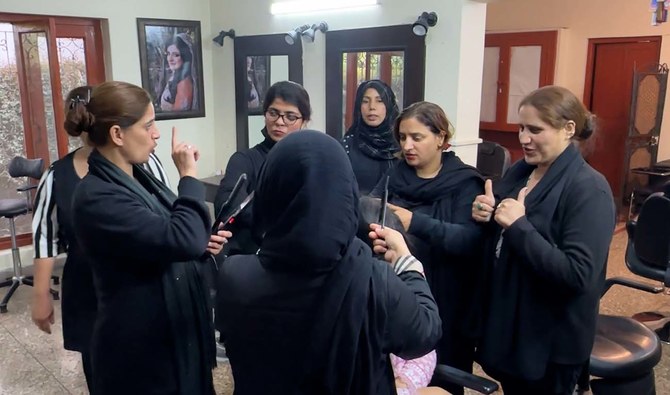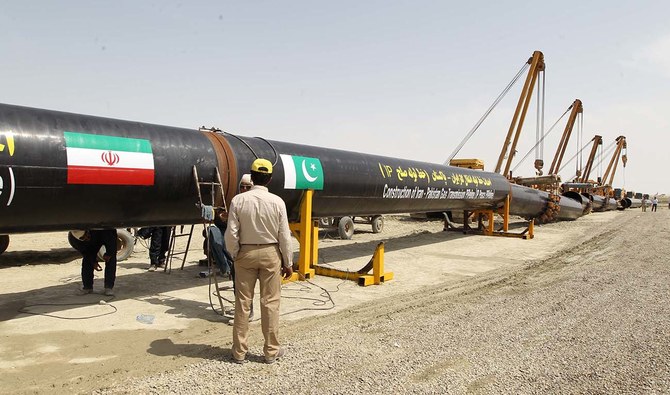KARACHI: For decades the residents of Bhains Colony, the largest cattle colony in the Pakistani port city of Karachi, have lived with cow dung littering their streets and polluting the air they breathe.
Now, the poo may prove a savior for the community as the government plans to use it for a $30 million biogas plant — part of a $583.5 million mega zero-emissions Bus Rapid Transit (BRT) system that will power over 200 of the port city’s public buses.
Biogas – the process of producing energy by fermenting waste – is gaining in popularity around the world as a way of reducing reliance on fossil fuels, cutting deforestation and providing cheap, reliable and easy-to-produce local energy. It has proved an attraction in rural and slum areas, often beyond national power grids, where animal dung is plentiful but firewood is becoming harder to access.
Progress on the Karachi biogas plant is in the tendering stage, officials said. The plant will produce approximately 64,000 m3 (64 tons) of methane gas per day, which will fuel buses, while additional gas will be supplied for power generation.
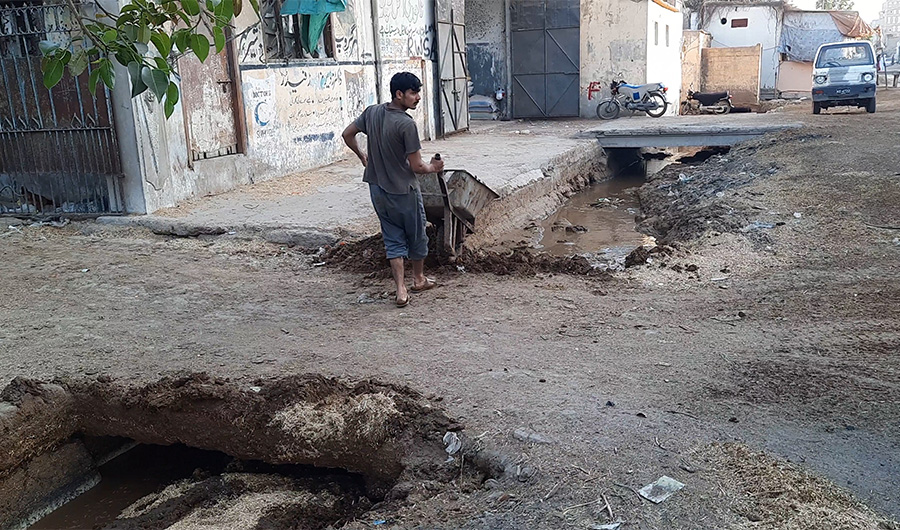
A dairy farm worker throws cow dung directly into a drain in Karachi, Pakistan, on January 30, 2021. (AN Photo)
“All initial studies are completed and tender documents will be ready for publication in a couple of months,” Masood Alam Farooqui, a biogas specialist on the BRT project, told Arab News, saying a delay in the project was due to the coronavirus pandemic. “The expected period of commencing production may be the first quarter of 2023, if everything goes well.”
“It is expected that little more than 20 tons of methane (purified fuel gas) will be delivered to the buses and additional shall be used for captive power generation,” Farooqui added.
Bhains Colony currently houses around 400,000 animals that produce an estimated 8,000 tons of manure every day, discharged directly into drains without being treated, from where it flows into the Arabia Sea, according to Shakir Umar Gujjar, president of the Dairy and Cattle Farmers Association.
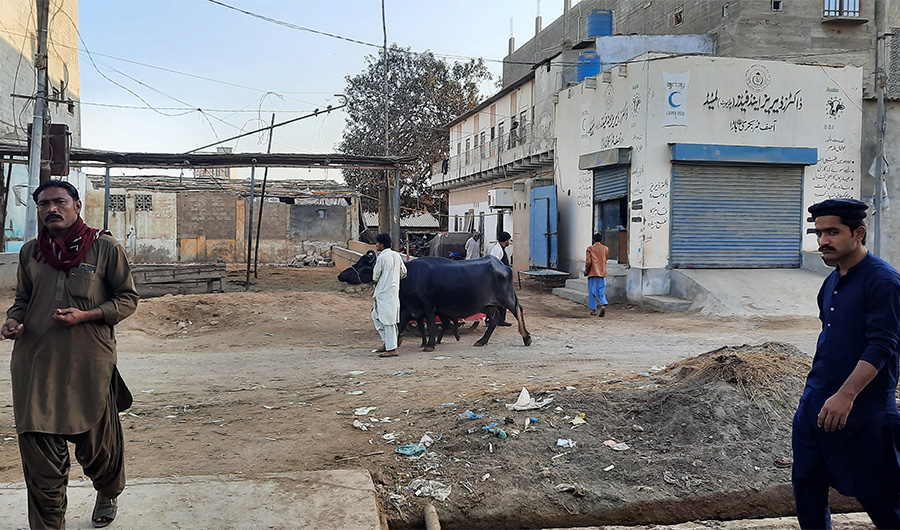
A street view of Bhains Colony in Karachi, Pakistan, on January 30, 2021. (AN Photo)
Waste from just around 15% animals at Bhains Colony is sufficient to fuel the BRT bus fleet on an ongoing basis, officials said. The project will also save around 240,000 tons in carbon emissions per year.
It is estimated that there are currently only 4,000 public transport carriers operating in Karachi, a city of over 15 million people, with only 400 big buses and 3,500 minibuses and coaches. There are a total of 60 routes for big buses out of which 47 are closed and only 13 are operational, according to Pakistani media reports.
The biogas project has been funded by the Asian Development Bank (ADB), which signed a loan agreement for $235 million in June 2020. The buses will be run by the provincial Sindh government’s Trans Karachi company, according to the Green Climate Fund (GCF), set up under UN climate talks to provide finance to developing countries to help them grow cleanly and adapt to a warming climate.

Cow dung in Bhains Colony seen on roadsides and in open drains in Karachi, Pakistan, on January 30, 2021. (AN Photo)
Additionally, ADB will administer a $71.8 million loan from the Asian Infrastructure Investment Bank, a $71.8 million loan from the Agence Française de Développement and a $37.2 million loan and a $11.8 million grant from the GCF.
The project includes a 30-km fully segregated state-of-the-art BRT with cycle lanes, a bike-sharing system, last-mile connectivity with e-pedicabs and improved pedestrian facilities, directly benefiting 1.5 million residents of Karachi, according to the blueprint document of the project.
Manure for the plant will be collected by heavy loading vehicles in collaboration with a farmers’ representative body, officials said.
“In the very first phase, the road network of the area will be rehabilitated in order for safe and easy movement of around 2,000 metric tons of manure per day from farmers to plant,” Farooqui said.
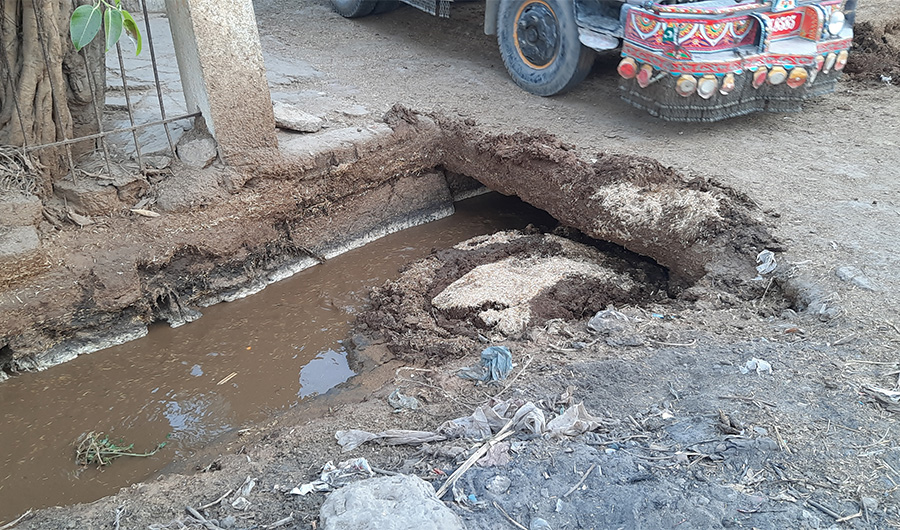
Animal dung in Bhains Colony seen in an open drain in Karachi, Pakistan, on January 30, 2021. (AN Photo)
Farmers say they are pleased with the project.
“The farming community of the cattle colony will be upgraded through various social sector development projects including infrastructure, streetlights, medical facilities for both humans and animals and educational and training facilities for farmers and their children,” Dr. Alamdar Hussain Malik, the project coordinator representing farmers, told Arab News.
“ADB in principle has also agreed to develop a mechanism for supply of fodder for animals at constant prices throughout the year as compared to the current high volatile prices.”
“We think this project that will also develop the dairy sector, not just the cattle colony,” Gujjar from the farmers’ association said. “This project will lift the whole sector up to the sky because ADB is involved with the Sindh government and is also directly in contact with us.”



